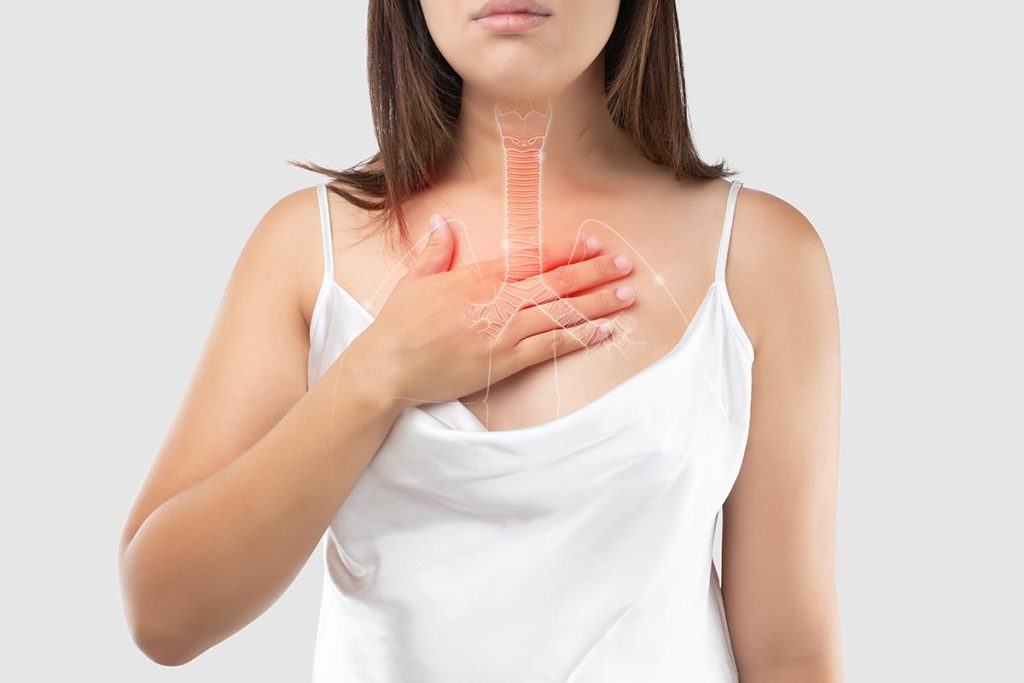Shortness of Breath Specialist in Michigan
If you are experiencing shortness of breath, it can be a scary and uncomfortable experience. Shortness of breath can be caused by a variety of factors, including underlying health conditions, such as asthma, chronic obstructive pulmonary disease (COPD), or heart disease. If you are looking for a shortness of breath specialist in Michigan, look no further than CardioQ – Heart & Wellness Center.
CardioQ is a leading cardiology practice in Michigan, dedicated to providing top-notch care to patients with a range of heart conditions, including shortness of breath. With years of experience and a team of highly qualified specialists, CardioQ is equipped to provide comprehensive diagnostic and treatment options to help you manage your shortness of breath.
At CardioQ, our team of specialists will work closely with you to identify the underlying cause of your shortness of breath and develop a personalized treatment plan to address your unique needs. Our state-of-the-art diagnostic testing and imaging services, including echocardiograms, pulmonary function tests, and stress tests, enable us to accurately diagnose the underlying cause of your symptoms.


Shortness of Breath or Dyspnea
The medical term for shortness of breath is dyspnea. Despite being relatively common, it can be uncomfortable and distressing to experience.
Shortness of breath (dyspnea), or breathlessness, occurs when a person has difficulty taking in enough air to breathe. It can range from mild to severe.
Shortness of Breath Specialist at CardioQ – Heart & Wellness Center offers advanced diagnostic testing to assess heart health and function and determine if your shortness of breath is related to a cardiac condition.

Signs & symptoms
Shortness of breath can be associated with symptoms of:
- Anxiousness
- Bloody sputum
- Chest injury
- Chest pain
- Chest tightness
- Cough
- Dizziness
Common Causes
Most cases of shortness of breath are due to heart or lung conditions. Your heart and lungs are involved in transporting oxygen to your tissues and removing carbon dioxide, and problems with either of these processes affect your breathing.
Common questions
Shortness of breath, medically referred to as dyspnea, makes your breathing difficult or labored. Cardiac conditions are a common cause of shortness of breath and may include:
- Dyspnea on exertion: Being short of breath during physical exertion is referred to as dyspnea on exertion.
- Paroxysmal nocturnal dyspnea: Paroxysmal nocturnal dyspnea refers to shortness of breath that occurs while you’re sleeping and wakes you up.
Your heart plays a major role in carrying oxygen-rich blood to the rest of your body. Conditions that affect your heart may interfere with this vital function and lead to shortness of breath.
Shortness of breath that comes on suddenly may be caused by:
- A heart attack
- Arrhythmia
- Congestive heart failure
- Pulmonary embolism
- Pericarditis
Your shortness of breath may also be a symptom of cardiomyopathy, which can cause the heart muscle to enlarge, thicken, and become rigid. Over time, the changes in the muscle may lead to other heart problems such as an arrhythmia, congestive heart failure, or heart valve problems.
Let our Shortness of Breath Specialist at CardioQ help you to get Shortness of Breath Treatment and relief from this discomfort.
CardioQ – Heart & Wellness Center is a full-service cardiology practice and performs a number of tests to assess heart health and function and diagnose cardiac conditions that cause shortness of breath.
Some of the testing offered includes:
Stress Tests
If you’re experiencing dyspnea on exertion, the cardiologists may perform a stress test to evaluate the function and structures of your heart when it’s working hard to pump blood throughout your body. The cardiology practice offers many types of stress tests, including the exercise stress test, nuclear stress test, and non-exercise nuclear stress test.
The results of your stress test may help diagnose coronary artery disease, congestive heart failure, or a heart valve disorder.
Echocardiogram Tests
An echocardiogram test uses ultrasound imaging that allows your cardiologist to see the movement of your heart muscle. A Doppler echocardiogram allows your cardiologist to measure the flow of blood through your heart and blood vessels. Your echocardiogram may help diagnose heart disease, heart valve disorder, or congenital heart defect.
Bio-Z
Bio-Z is a breakthrough medical test that assesses the strength of your heart’s pumping action and the amount of fluid in your chest, which may help diagnose congestive heart failure.
Microvolt T-wave alternans (MTWA)
MTWA is a test administered to patients at risk of having a heart attack, or those who have already had a heart attack, to determine if they’re at risk of developing an arrhythmia or other life-threatening problem.
Shortness of breath is a common symptom of many cardiac conditions. For an accurate diagnosis, call Shortness of Breath Specialist at CardioQ – Heart & Wellness Center or book an appointment using the online tool.
COVID-19 & Shortness of Breath
One of the signature symptoms of COVID-19 is shortness of breath. Other common symptoms are fever, cough, and fatigue.
Most people who get COVID-19 will experience mild to moderate symptoms that can be treated at home. If you’re sick and suspect that you may have COVID-19, the Centers for Disease Control and Prevention (CDC)Trusted Source recommends these next steps:
• Stay home and separate yourself from all family members and pets as much as possible.
• Cover your coughs and sneezes and wear a cloth mask if you must be around other people, but try to stay 6 feet away at minimum.
• Stay in touch with your doctor and call ahead if you end up seeking medical attention.
• Wash your hands often.
• Avoid sharing household items with other people in the house.
• Disinfect common surfaces often.
You should also be monitoring your symptoms while at home. You should seek emergency medical attention if you experience any of the following symptoms:
• trouble breathing
• heaviness or tightness in the chest
• bluish lips
• confusion
• drowsiness
